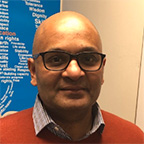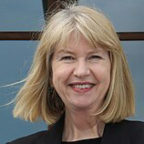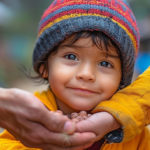
“Protecting Futures: Addressing lack of access to education for children without legal identity”
Ver la grabación
El derecho de los niños y niñas a la identidad –incluidos el registro de nacimientos, el nombre, la nacionalidad y las relaciones familiares en virtud de los artículos 7 y 8 de la Convención sobre los Derechos del Niño– es un derecho autónomo. El derecho a tener su nacimiento registrado y a acceder a una nacionalidad también son derechos autónomos. La falta de una identidad formalmente reconocida y documentada –una identidad jurídica (ODS 16.9)– impide que los niños y niñas tengan acceso a sus derechos fundamentales, como la educación, la salud, el desarrollo y los servicios sociales. Debido a la falta de identidad, millones de niños y niñas son excluidos del sistema educativo (por ejemplo, no pueden inscribirse y/o no pueden presentar exámenes). Este simposio pretende arrojar luz sobre los desafíos a los cuales se enfrentan los niños y niñas que no cuentan con una identidad al momento de acceder a los servicios educativos, así como ofrecer prácticas prometedoras en respuesta a ello. Este evento apoyará a los Estados y a otros actores pertinentes en:
- Sensibilizar acerca del impacto significativo y de por vida de la pérdida y/o privación de identidad;
- Cumplir con sus compromisos para el logro de los ODS 4 (educación universal) y 16.9 (identidad jurídica para todas y todos);
- Poner en práctica la Resolución del Consejo de Derechos Humanos del año 2023 sobre registro de nacimientos, la cual recomiendo a los Estados, entre otras: “(…) reforzar la interoperabilidad y los vínculos con otros sectores, en particular los de la salud, la educación y la protección social, respetando al mismo tiempo el derecho a la privacidad, a fin de garantizar el registro inmediato de los nacimientos en los establecimientos de salud, y facilitar mecanismos de rescate para los niños de más edad o los adultos a fin de que todas las personas tengan acceso a una identidad jurídica”.
SPEAKERS

Olayemi Aileru
Speaker
Olayemi Aileru is a renowned child psychologist with 25 years’ experience working with children and youth in the not-for-profit sector. She is deeply passionate about street-connected children’s rights. Yemi is currently Programme Manager at Child Life Line and has previously held positions at SOS Children’s Villages and Zamani College and is an active executive member of Lagos State Child Protection Network.

Najlaa Fathi Al-Farisi
Speaker
Najlaa Fathi Al-Farisi, a civil activist from Benghazi, Libya, is Executive Director of the Al-Rawnaq Organization for Women and Children, a leader in the Libyan Red Crescent, and the Director of the Senior Administration for Libyan Women Married to Non-Libyans at the National Council for Libyan Women. Ms. Al-Farisi is also the Director of the Women’s Affairs Office at the National Authority of Notables and Sheikhs of Libya.

Christina Baglietto
Speaker
Has over 15 years of experience in alternative care and adoption. She has experience working in the context of legislative, political, institutional and practical reform in these areas. In Guatemala, she contributed to the implementation of new national legislation on adoption and alternative care and international standards, provided training, and developed standard operating procedures. Likewise, she has provided training and technical support in the reforms of these systems across the globe. In the last decade, she has been a consultant for various UNICEF offices, International Social Service, the Hague Conference on Private International Law, as well as the Latin American Foster Care Network.

Elvis Beriša
Speaker
Elvis Beriša is one of the founders and executive director of the Roma youth organization “Walk with us – Phiren Amenca”. He is finishing master’s studies at the criminal justice program of the University of the Mediterranean. As a former stateless person coming from the Roma community, he has been working in direct communication with the Roma community for ten years, including four years actively working in the field of statelessness and unregulated legal status of Roma in Montenegro. He is the author of a short documentary “Stories of the Invisible” which presents the challenges Roma communities face daily.”

Suzanne Clulow
Speaker
Suzanne manages the Child Rights Advocacy Programme at the Children in Distress Network (CINDI), South Africa, where she is involved in research, advocacy and capacity support to local CSOs working with children.
Suzanne has experience in programme design and implementation, organisational and capacity development, research and M&E within the NGO sector. She has a particular interest in advocacy and policy development within the children’s sector and is actively involved in a number of related national and international networks.

Carolina Escobar
Speaker
Dr. Carolina Escobar Sarti is a Guatemalan writer, poet, academic, newspaper columnist, human rights activist, and social researcher with extensive experience in multiple specialty areas including human trafficking, migration, child and adolescent development, gender based and gang related violence, communications, and literature. She received her undergraduate and master degrees in Guatemala and her doctorate in Sociology and Political Science from Salamanca University, Spain. In 2010, in collaboration with Covenant House International, Dr. Escobar Sarti launched Asociación La Alianza (ALA), an institution that has become a model for wholistic and transformation work with girl, boy, and adolescent victims of trafficking and sexual violence.
She is also a member of the International Committee for October 17, and has been supporting families and members of ATD Fourth World in her country for many years. https://overcomingpoverty.org/carolina-escobar-sarti/
During her thirteen years at the helm of ALA, and before, Dr. Escobar Sarti has been recognized and honored in multiple forums, both within Guatemala and internationally, for her many accomplishments and for her dedicated service. Here some recongnitions:
Honored by The Center for Human Rights and Peace Studies, Lehman College, New York, NY for her participation in the creation of regional strategies to prevent violence against women in Central America, and to promote women’s rights and participation in democratic processes. (2011)
Invited speaker at the Parallel Forum for Freedom of Expression, Internet and Children. United Nations headquarters, New York (2014)
Recipient of the Medal of the Order Vicenta La Parra de la Cerda, given to outstanding Central American women who pioneer significant social change through literature, arts and science. Guatemala (2014)
Named by Forbes Magazine in 2019, as one of Latin America’s 100 most powerful women. Https://issuu.com/forbeslatam/docs/forbes_ca_julio_2019. Named again by Forbes as one of Central America and the Caribbean’s 100 most powerful women in 2020 and 2021.
Recipient of the Olof Palme Medal, Olof Palme International Foundation. Awarded to individuals who defend human rights, and promote peace, conflict resolution, and sustainable development. Barcelona, Spain (2019)

Delkhwaz Haciy
Speaker
Delkhwaz coordinates GSF’s advocacy efforts and technical support to state authorities in Iraq, working closely with Iraqi civil society organizations and the survivors’ movement to ensure a survivor centred implementation of the Yazidi Survivors Law.
Delkhwaz has four years of experience working in the context of Iraq, dedicated to pursuing criminal accountability for crimes against the Yazidis at international courts. In this role, Delkhwaz conducted detailed legal research, analyses of witness and victim testimonies as well as assisting with information requests from relevant war crime units and law enforcement agencies. Her work also included a strong focus on strengthening evidence collection, adherence to international standards, and ethical best practises. She was instrumental in developing the legal advocacy strategy, ensuring survivor-centred and trauma-informed approaches are central to the process.
Delkhwaz’s academic background includes a Master of Laws degree from Lund University, Sweden.

Tahera Hasan
Speaker
Tahera Hasan is a lawyer and the Founder and Director of Imkaan Welfare Organisation. Imkaan, focuses on child welfare, and runs projects in relation to the same including a including a child adoption programme, Maternity Home, the Community Healthcare Centre with a Mother and Child Health Care Centre and Mental Health Clinic, Khel a learning and recreational centre, Pasban-e-Mahaul – a solid waste management project, Imkaan Legal Aid Centre addressing all legal issues arising out of a lack of identity and in the process for acquiring citizenship for a predominantly stateless population and Imkaans Community Centre for Women. Imkaans projects have been conceived, initiated and implemented under her supervision, with extensive work in working with communities. Ms. Hasan work further comprises of raising awareness and advocacy initiatives on the issue of Bengali statelessness in Pakistan. Ms. Hasan has lectured on legal issues in development as visiting faculty at NED University, and lectured as guest lecturer in numerous universities and platforms on issues of statelessness in Pakistan. She was awarded the Ruth Pfau award for ownership by IAM Karachi in the year 2017, the Commonwealth Point of Light Award in 2022 and is a Commonwealth Scholar.

Ali Johar
Speaker
Ali Johar is a prominent Rohingya refugee human rights defender and Statelessness activist. Currently, Ali is a fellow at Refugees International. He co-founded the Rohingya Human Rights Initiative, a community-based support and campaign organization and founded the Rohingya Literacy Program (RLP) to help Rohingya children access formal education in India. He is originally from Rakhine State, Myanmar. He works closely with the Institute on Statelessness and Inclusion. A Youth and Education Coordinator for the Free Rohingya Coalition, a network of international activists and scholars working to end Myanmar’s genocide. Ali has published articles, blogs, human rights reports, book chapters on the issues faced by refugees and stateless people. Learn more about Ali

Faith Marshall-Harris
Speaker
Faith Marshall-Harris was educated at Queen’s College, Barbados, and is an English Honours graduate of the University of the West Indies, Mona, Jamaica and post graduate of the University Of Geneva, Switzerland. She had early careers as a journalist, as a teacher at Lodge School and as a Government Information Officer. She was then posted to London, UK for 11 years where she headed the UK and Europe Office of the Barbados Board of Tourism as it then was. She later returned to Law School and was called to the Bar in Barbados in 1991. She initially worked in private practice and as Legal Counsel in the Ministry of Housing. Thereafter she joined the Attorney General’s Chambers and served as Crown Counsel and Senior Crown Counsel. From 1998-2000 she was seconded to UNDCP, coordinating a drug interdiction project in 18 countries of the Caribbean and South America region.
Upon her return from this assignment she served as Deputy Registrar, Supreme Court, was subsequently appointed Principal Crown Counsel and eventually Magistrate and Island-wide Coroner, a post she held for ten years.
Concurrent with coronial responsibilities, she was Magistrate for the Juvenile and Family jurisdiction for District A. While on the Bench she authored a study entitled Factors and Trends in Juvenile Justice in Barbados using two hundred and seventy-five case histories from her Court. UNICEF gave technical assistance in the completion of this project. In that Court she also pioneered the Circle of Care where she invited counselors, social workers, pastors, teachers and representatives of a number of Government and Non-governmental agencies to sit with her to advise the Court and assist with the treatment and rehabilitation of juvenile offenders.
From 2012 she has been in general practice as an attorney-at-law and legal consultant dealing mainly with issues relating to family and children. These consultancies were funded by UNICEF, UN Women, and the World Bank in partnership with the Government of Barbados. They include a white paper entitled Review of Laws Relating to Women, Children and their Families: Analysis, Harmonisation and the Case for Reform which included a chapter on Juvenile Justice. She developed the Mandatory Reporting Protocol on Child Abuse for the Child Care Board and authored the Legislative Review of the 16-18 Disconnect with Recommendations for the HIV/AIDS Commission and World Bank and also The Adolescent Access Systems Protocol Document and Position Paper for the Barbados Family Planning Association. She is also legal representative for several corporate entities.
In October, 2012 she was named Champion for Children by UNICEF. In that capacity she represents many children and their parents in pro bono cases and champions their cause in various public fora.
She was formerly Chairman of one of the Appeals Tribunals of the National Insurance Scheme, a member of the Government appointed Family Law Council. She is a member of the local committee coordinating JURIST, a justice improvement project funded by the Canadian Government.
She is also currently Chair of the National Committee on Rights of the Child.
She received the Spirit of KIWANIS Award for outstanding contribution to their project ‘Awareness of Child Neglect and Abuse’.
Faith was given the Certificate of Recognition award for outstanding Leadership and Civic Activism by the University of the West Indies on its 70th anniversary.
At the United Nations Head Quarters in New York on June 29, 2018 she was elected by the General Assembly as one of 18 Child Rights experts from around the world to sit on the global United Nations Committee on the Rights of the Child for the period 2019 – 2027.

Bhaskar Mishra
Speaker
Bhaskar Mishra works as the Civil Registration and Vital Statistics and Legal Identity Specialist with UNICEF HQ, New York. He also supports UNICEF’s work on the UN Legal Identity Agenda. From 2016 to 2021, Bhaskar worked with the UNICEF Tanzania CO as the Child Protection Specialist for Birth & Death Registration, supporting the Government of Tanzania in scaling up the simplified birth and death registration system. Previously, Bhaskar worked as the Deputy Registrar General responsible for implementing India’s birth and death registration system.
LinkedIn page: https://www.linkedin.com/in/bhaskar-mishra-9b43a5126/
Twitter: @BhaskarBmishra
WhatsApp: +1 646 923 0809

Deneisha Moss
Speaker
Deneisha Moss is the Programme Lead for ISI Children’s Programme where she holds responsibility for coordinating activities and implementing initiatives that focus on addressing childhood statelessness. She also supports other ISI programmes including the Discrimination Programme, Deprivation of Nationality and Capacity Building and Resource Development. Deneisha is based out of the Tilburg Office. Prior to joining ISI, Deneisha spent more than 12 years in the humanitarian sector where she worked with the UN Refugee Agency predominantly in Southeast Asia and the Americas. There, she specialised in refugee protection, with an emphasis on child protection and statelessness. Deneisha is a non-practising Barrister, admitted to the Bar of England and Wales (2002), The Bahamas (2002), Turks and Caicos Islands (2006). She holds a Bachelor of Laws degree from the University of Leeds in England, and a Master of Laws in International Human Rights and Humanitarian Law from the University of Lund in Sweden.

Blessing Mutama
Speaker
Blessing Mutama is the National Programme Manager at Farm Orphans Support Trust (FOST). FOST works to supports and protects vulnerable children in Zimbabwe’s farm worker communities. Blessing is a seasoned development practitioner with over 17 years’ experience in NGO project design, planning, implementation, and Monitoring & Evaluation. Blessing has done a lot of consultancy work around Psycho Social Support trainings, as well as consultancy work for REPSSI, the Regional Psychosocial Support Initiative in East and Southern Africa. He is a Trustee for Family for Every Child.

Monika Sandvik
Speaker
Monika Sandvik started her new function as Senior Statelessness Coordinator/Head of Section with the Office of the UN High Commissioner for Refugees (UNHCR) in February 2022. She worked previously with UNICEF Kenya as Chief of Child Protection prior to which she worked with (UNHCR)as Senior Protection Adviser (Children) for East Africa/Great Lakes and Senior Protection Officer (Children) heading the global UNHCR Child Protection team. She has worked for the last 20 + years in the field of protection and humanitarian affairs. She has also worked with UNOCHA and with the Department of Peacekeeping Affairs/UN Mission in Sudan, as well as Save the Children. She has lived and worked in Sudan, Kenya, Switzerland, DRC, Sri Lanka and Thailand. She has an LL.M from Columbia University and an MA Pol. Sc from Abo Akademi University, Finland. She also has a certification as a Registered Nurse and Community Worker.

Ann Skelton
Speaker
Ann Skelton is an international expert on children’s rights. She is a Law Professor at the University of Pretoria, where she holds the UNESCO Chair in Education Law, and is also appointed part time at the University of Leiden where she holds the Chair in Children’s Rights in a Sustainable World. She also teaches international children’s rights at the Universities of Oxford and Strathclyde. She has worked as a children’s rights lawyer in South Africa for 30 years where she played a leading role in child law reform. She pioneered strategic litigation on children’s rights from the Centre for Child Law (where she was Director from 2008 to 2018) and appeared as legal counsel arguing many landmark cases in the South African courts, including cases enforcing the right to education. Her global influence has been recognised through several awards, including the Honorary Worlds Children’s Prize and the Juvenile Justice Without Borders Award. She has chaired several international drafting bodies, including the Global Study on Children Deprived of their Liberty, and the expert committee that drafted the Abidjan Principles on state’s obligations regarding public education and the regulation of private of education.

Omar Bielma Velazquez
Speaker
Omar BIELMA VELAZQUEZ is a Mexican career diplomat. Since 2022, he serves as a Human Rights Delegate at the Permanent Mission of Mexico to the United Nations Office and other International Organizations in Geneva, where he mainly focuses on civil and political rights. At the Human Rights Council, he was the Mexican negotiator of resolutions 52/25 on birth registration and 53/16 on the right to a nationality, both presented by Mexico together with a group of countries. From 2019 to 2022, he was the Head of the Consular Section at the Embassy of Mexico in Ethiopia where, as part of his consular functions, he was responsible for civil registration services for Mexicans abroad. Prior to these posts, during his foreign service training in 2019, he was assigned to the departments of Civil Registration and Family Law at the Ministry of Foreign Affairs of Mexico. He previously worked as a foreign affairs advisor at the Mexican Senate and has a background in international relations.

Bridget Wooding
Speaker
Bridget Wooding is a researcher, advocate, writer, trainer, and expert witness on statelessness and related issues. She has coordinated the Caribbean Migration and Development Observatory (OBMICA), based in Santo Domingo (www.obmica.org), since its inception in 2009. She is the author of numerous publications, including books and articles on nationality matters and the migration dynamics affecting the Dominican Republic, the island of Hispaniola, the insular Caribbean, and respective diasporas. In 2013, she delivered an expert witness testimony in the case of Expelled Dominicans and Haitians v. Dominican Republic, which led to significant jurisprudence on the right to nationality for Dominicans of foreign ancestry (IACtHR 2014). Under her leadership, OBMICA is a founding member of the Americas Network on Nationality and Statelessness, established in late 2014. She works closely with the Institute on Statelessness and Inclusion, notably through a Platform of civil society organisations in the Dominican Republic which engages in advocacy to redress mass denationalization which occurred in 2013 of over 130,000 Dominicans of mainly Haitian ancestry.
- 28 noviembre 2023






